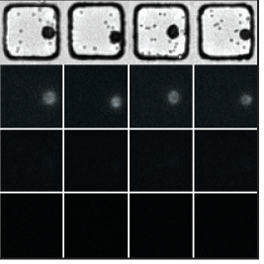Many cancers are an inflammatory disease of tissue, comprising millions to billions of malignant and stromal cells. Within tumors, there can be different families of cells, each present with diverging genetic and phenotypic variations. The genetic evolution of tumors enables clones most resistant to therapies to survive, but complex functional interactions and the phenotypic manifestation of those genetic variances can also impact tumor growth and progression, as well as resistance to therapeutics. Yet, it remains poorly understood how such genetic and phenotypic heterogeneity affect one another. Mapping these differences, and understanding how different groups of genetically heterogeneous cells interact functionally with each other, should improve our understanding of the nature of cancer and inform new strategies for clinical management. In our lab, we apply technologies for single-cell analysis to examine the complexities of the tumor microenvironment and circulating tumor cells (CTCs) using both high-throughput, functional assays (single-cell growth kinetics, protein secretion, cytotoxicity assays, and more) and next-generation sequencing (whole genome, whole exome, and whole transcriptome).


